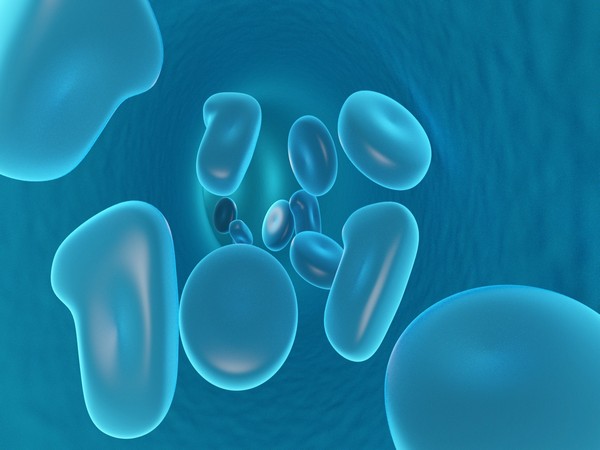Study finds protein critical to T cell metabolism, anti-tumour immune response
Researchers at The University of Texas MD Anderson Cancer Center have discovered that a protein called NF-kappa B-inducing kinase (NIK) is essential for the shift in metabolic activity that occurs with T cell activation, making it a critical factor in regulating the anti-tumour immune response.
ANI | Washington DC | Updated: 05-01-2021 11:08 IST | Created: 05-01-2021 11:08 IST
Researchers at The University of Texas MD Anderson Cancer Center have discovered that a protein called NF-kappa B-inducing kinase (NIK) is essential for the shift in metabolic activity that occurs with T cell activation, making it a critical factor in regulating the anti-tumour immune response. The preclinical research, published today in Nature Immunology, suggests that elevating NIK activity in T cells may be a promising strategy to enhance the effectiveness of immunotherapy, including adoptive cellular therapies and immune checkpoint blockade.
In a preclinical melanoma model, the researchers evaluated melanoma-specific T cells engineered to express higher levels of NIK. Compared to controls, these T cells displayed stronger tumour-killing abilities and improved survival, suggesting that increasing NIK activity may improve the effectiveness of adoptive T cell therapies. "NIK is a novel regulator of T cell metabolism that works in a very unique manner. Biologically, NIK activity stabilizes the HK2 glycolytic enzyme through regulating the cellular redox pathway," said corresponding author Shao-Cong Sun, Ph.D., professor of Immunology.
"From the therapeutic point of view, we were able to improve the efficacy of adoptive T cell therapies in preclinical models by overexpressing NIK in those cells," added Sun. T cells generally exist in a relatively quiet state with low energy demands and little cell division, Sun explained. However, upon recognizing an antigen, T cells begin expanding and activate the glycolysis metabolic pathway to meet the increased energy demands of carrying out their immune function.
This metabolic shift is closely regulated by immune checkpoint proteins, such as CTLA-4 and PD-1, which act to repress T cell metabolism. Thus, immune checkpoint inhibitors can reinvigorate T cell anti-tumour activity by boosting metabolism. In addition, T cells begin producing proteins called costimulatory molecules after they become activated, which work to stimulate metabolism and the immune response.
Knowing that the NIK protein functions downstream of many of these costimulatory molecules, the researchers sought to better understand its role in regulating T cell function. In melanoma models, NIK loss resulted in an increased tumour burden and fewer tumour-infiltrating T cells, suggesting NIK plays a crucial role in anti-tumour immunity and T cell survival.
Further experiments revealed that NIK is essential for the metabolic reprogramming in activated T cells through its control of the cellular redox system. Increased metabolism can lead to elevated levels of reactive oxygen species (ROS), which can damage the cell and stimulate protein degradation. The researchers discovered that NIK maintains the NADPH redox system, an important antioxidant mechanism to reduce the accumulation of ROS. This in turn leads to the stabilisation of the HK2 protein, a rate-limiting enzyme within the glycolysis pathway.
"Our findings suggest that without NIK, the HK2 protein is not stable, and is constantly being degraded. You need NIK to maintain HK2 levels in T cells. Interestingly, we found that adding more NIK to the cells, you can further increase the levels of HK2 and make glycolysis more active, Sun said. As a potential therapeutic application, the researchers currently are working to evaluate modified chimeric antigen receptor (CAR) T cells in the laboratory engineered to overexpress NIK.
In the future, they hope to explore other therapeutic approaches, such as targeted therapies that could manipulate NIK activity in tandem with other immunotherapy approaches, including immune checkpoint inhibitors. (ANI)
- READ MORE ON:
- Nature Immunology
- Sun
- Ph.D.

